Special Report
You'll Be Surprised What People Eat for Breakfast Around the World
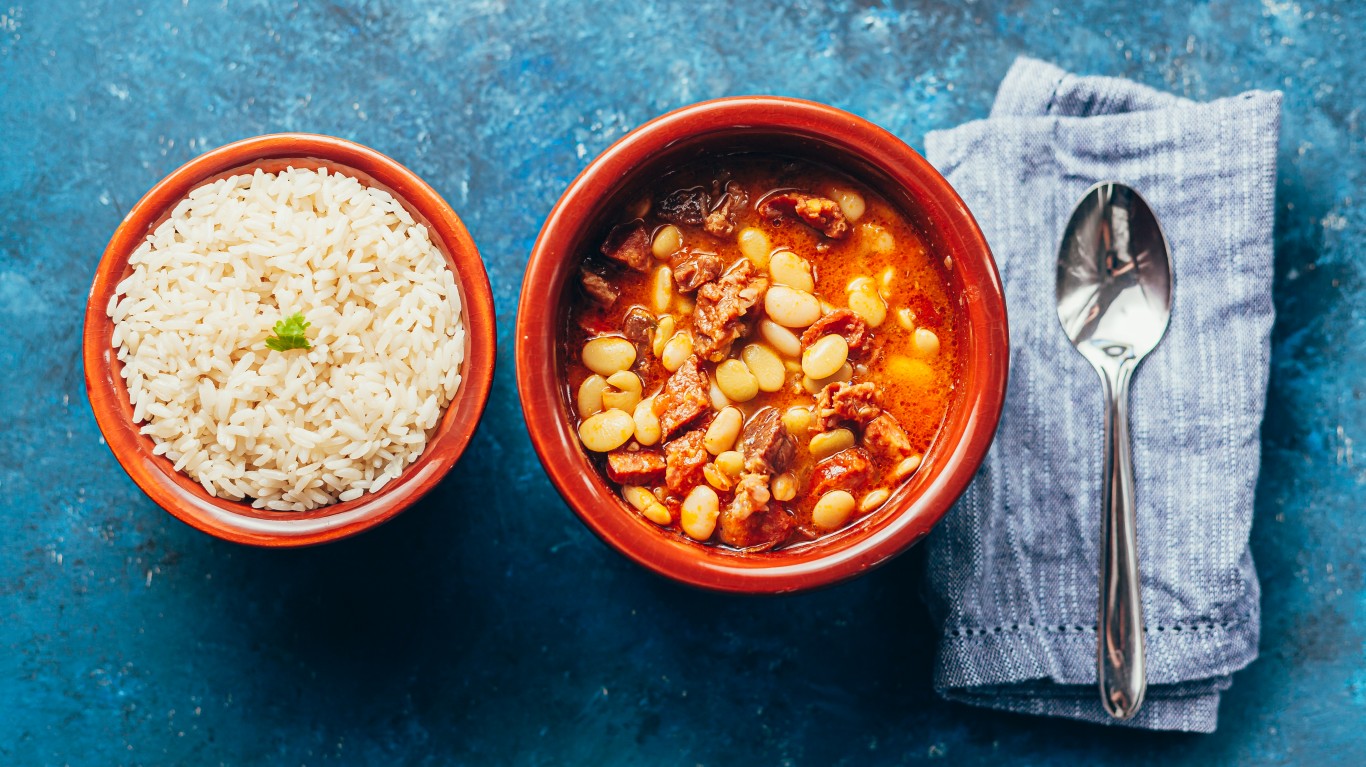
Published:

Our ideal breakfast in this country consists of scrambled eggs, crispy bacon, toast, and coffee with milk. At least that’s according to research collected by the international data and analytics firm YouGov for a survey called “How do Americans like their breakfast foods?”
Of course, that’s not what all of us eat every morning. Some of us don’t eat breakfast at all, though we’ve been told repeatedly that it’s the most important meal of the day. For others, breakfast means a healthy serving of oatmeal or yogurt, perhaps with fresh fruit added.
Or we go the other direction, and have a couple of doughnuts or a sweet roll — or one of those fat-and-calorie bombs that is the fast-food breakfast sandwich. (If you’re going to have one of these, it makes sense to at least have a good one. These are the best breakfast sandwiches in every state.
Bagels are another popular breakfast choice, whether toasted or not, plain or flavored, with cream cheese or butter. And then there’s the contingent that just likes to sit down with a bowl of their favorite breakfast cereal drenched in milk. (Was your favorite one of the breakfast cereals you can’t buy anymore?)
The point is that many different kinds of food can constitute breakfast in America. And that’s just here. Around the world, people start the day — break their overnight fast — with an amazing variety of foods. Just as in America, it’s impossible to say that this item or that is the only thing people eat for breakfast in a certain country. Season, region, economics, and personal taste all play a role. The list that follows, then, reveals a typical breakfast in each country but hardly the only common breakfast food.
Click here to be surprised by what people eat for breakfast around the world
In looking at some of the more unusual (to us) breakfast choices people make around the world, several things become clear: Much of what’s eaten is savory, not sweet, and spice is a frequent component. Legumes like fava beans and black-eyed peas in various forms are popular. Soups and porridges are commonplace. Fish shows up often — not just the lox we might eat with our bagels or the kippers (smoked herring) popular in the U.K., but catfish, tuna, even anchovies. Eggs are often added to the main dish or served alongside, and tea or coffee are constants.
Just as the world’s cultures are spectacularly varied, so are the world’s cuisines — starting with the first meal of the day.
Brazil
> Sample breakfast dish: Tapioca cheese puffs
Pão de queijo (literally “cheese bread”) is a small, light bun — sometimes called a cheese puff — similar to France’s gougère, except that it’s made with tapioca (cassava) flour. A specialty of the state of Minas Gerais in southeastern Brazil and traditionally made with cheese from that region, it’s now a popular breakfast snack all over the country, usually accompanied by coffee.
[in-text-ad]
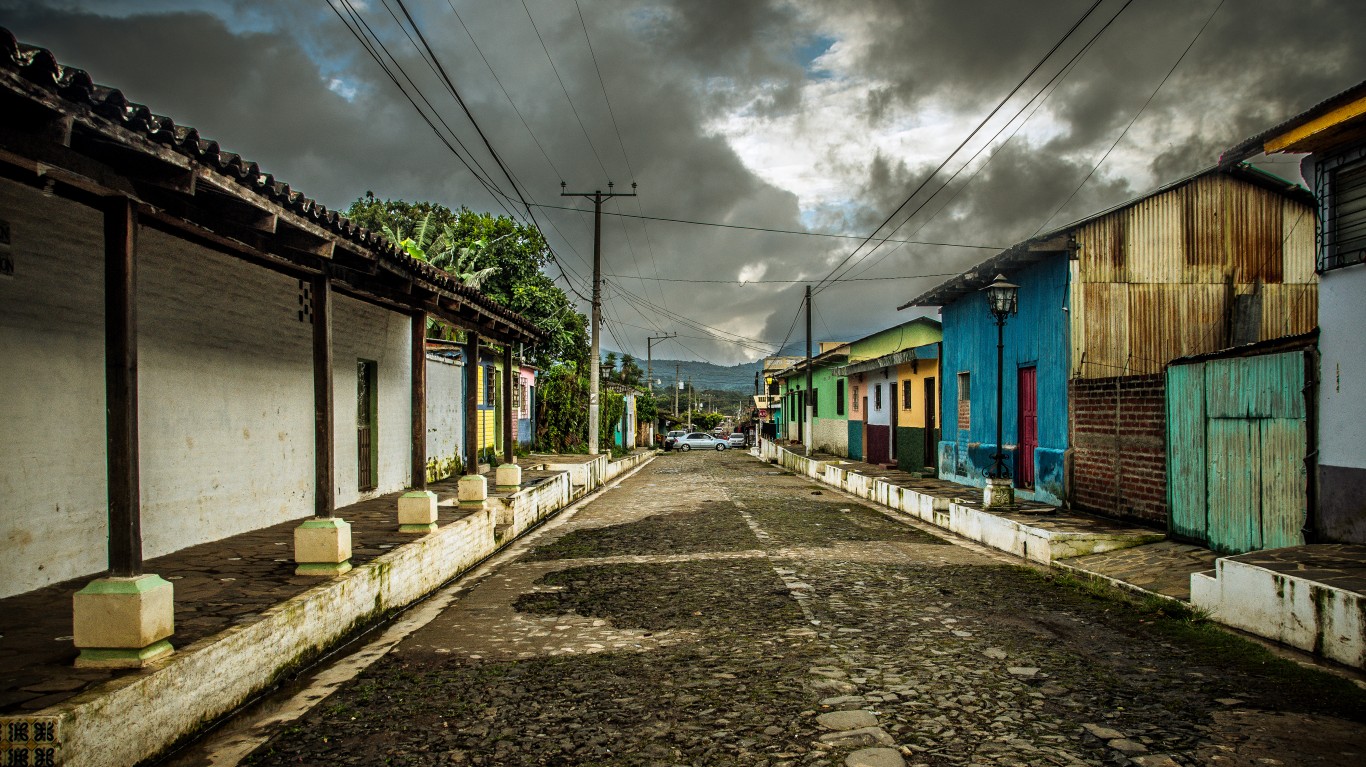
El Salvador
> Sample breakfast dish: Corn cakes filled with beans and cheese
Pupusas — in effect thick, stuffed tortillas, made with masa (alkali-processed corn dough) — are a breakfast staple in this Central American nation. They’re usually filled with beans and cheese or with cheese and chicharrón (spiced, shredded pork, not to be confused with the fried pork rinds called chicharrones) and served with curtido, a spicy slaw.
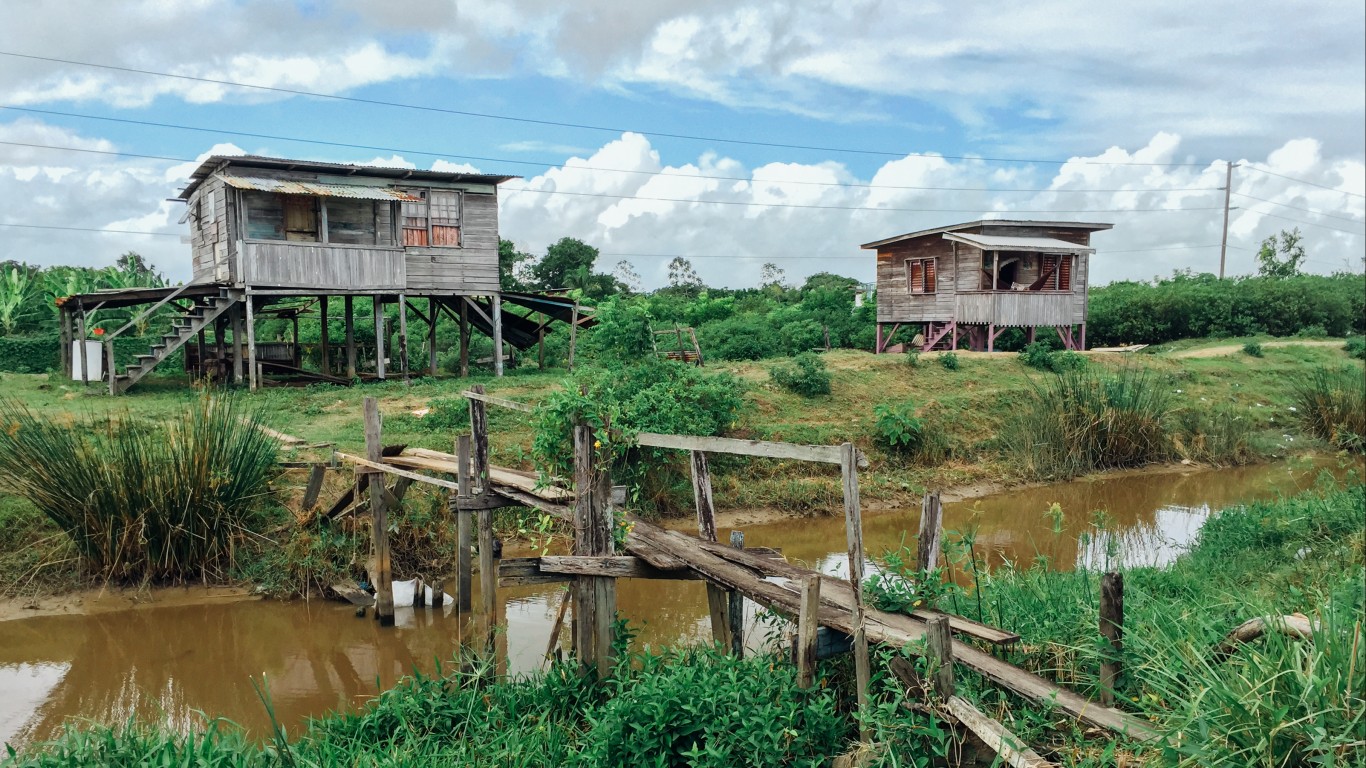
Guyana
> Sample breakfast dish: Fried bread dough with salted fish
Bake and saltfish (or salt fish), also called saltfish and bake, is a classic breakfast dish in this small country on the northern coast of South America. Saltfish is another name for salt cod — cod or pollock preserved by drying and salting. “Bake” consists of dough balls fried in hot oil. The accompanying fish is cooked with onions, bell peppers, and tomatoes. Green tea rather than coffee is the usual accompaniment.
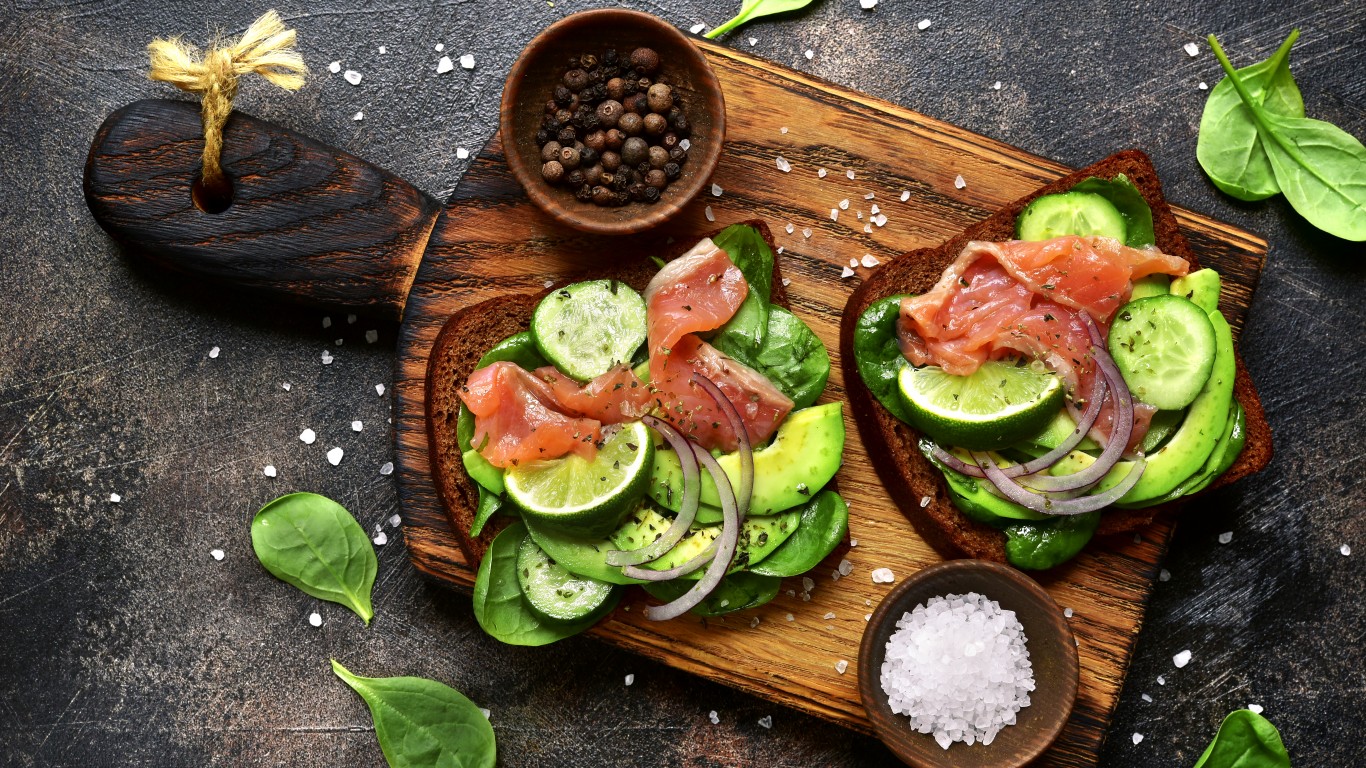
Jamaica
> Sample breakfast dish: Fruit and salted fish
The salted fish in the Jamaican standby called ackee and saltfish — considered the island’s national dish and eaten for breakfast, lunch, and dinner — is also salt cod. Ackee is a fruit related to lychee. Its yellow flesh, when cooked with onions, bell peppers, tomatoes, and often a Scotch bonnet chile, resembles scrambled eggs.
[in-text-ad-2]
Mexico
> Sample breakfast dish: Chilaquiles
The Mexican breakfast favorite called chilaquiles consists of fried tortilla strips or chips cooked in red or green salsa. Shredded chicken is sometimes stirred in, and chilaquiles are often served with a fried or scrambled egg on top.
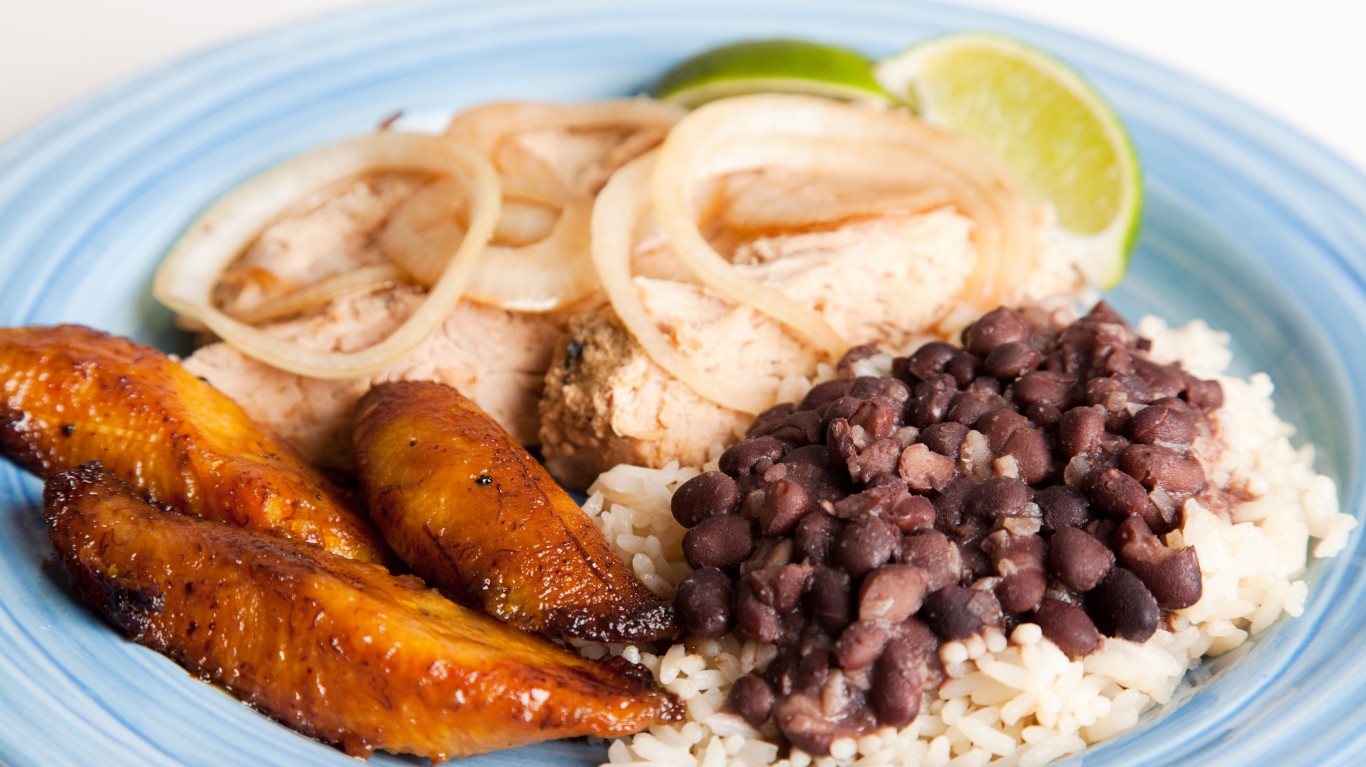
Peru
> Sample breakfast dish: Fried plantains with pork
Breakfast choices in Peru vary greatly according to region, but one popular example, from the Amazon Basin, is tacacho con cecina — mashed, roasted plantains mixed with bits of rehydrated salted pork (like pork jerky).
[in-text-ad]
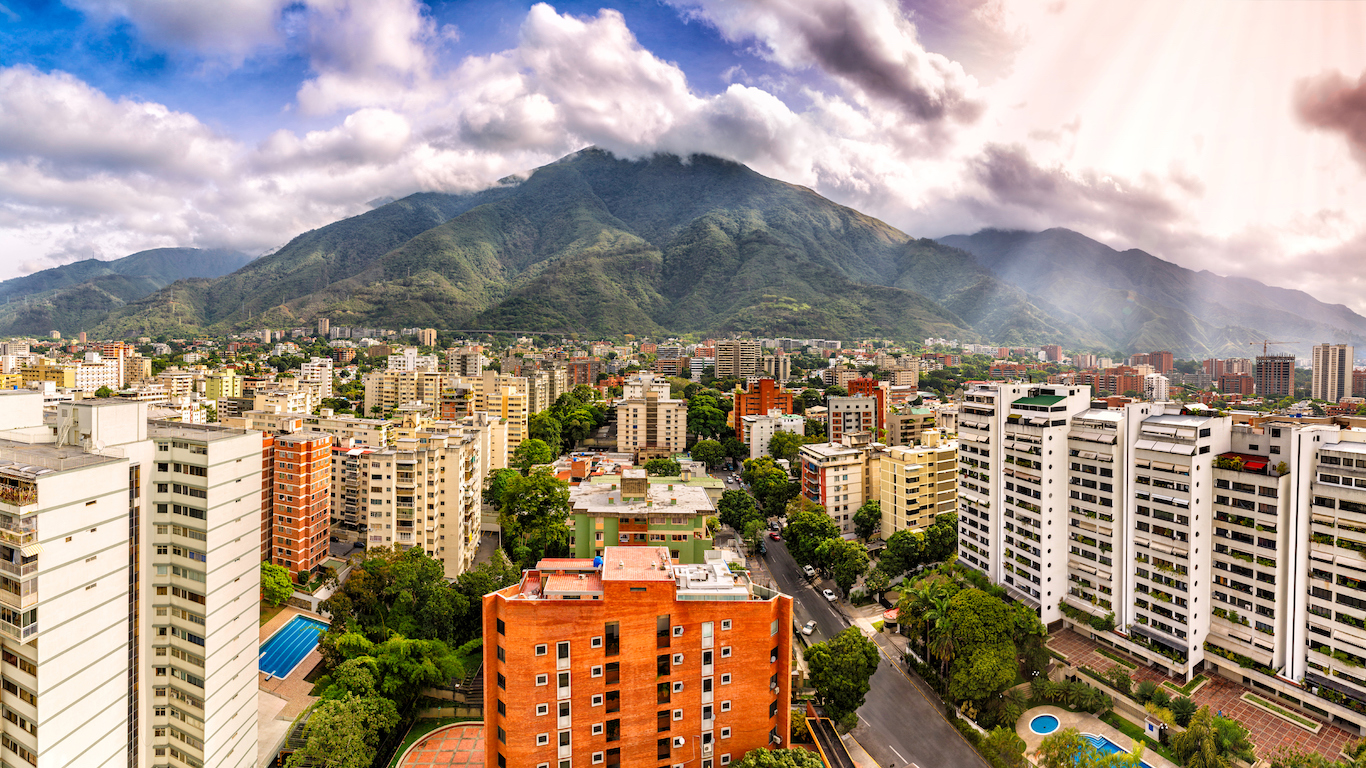
Venezuela
> Sample breakfast dish: Cheese-filled corn pancakes
Arepas are similar to El Salvador’s pupusas, but tend to be smaller and are made with a variety of cornmeal rather than with the masa used for pupusas. In 2014, the food, travel, and entertainment website Thrillist anointed arepas “the world’s best breakfast” — specifically those filled with “butter and salty cheese, assortment of meats, chicken & avocado salad, eggs, beans” (though presumably not all at once).
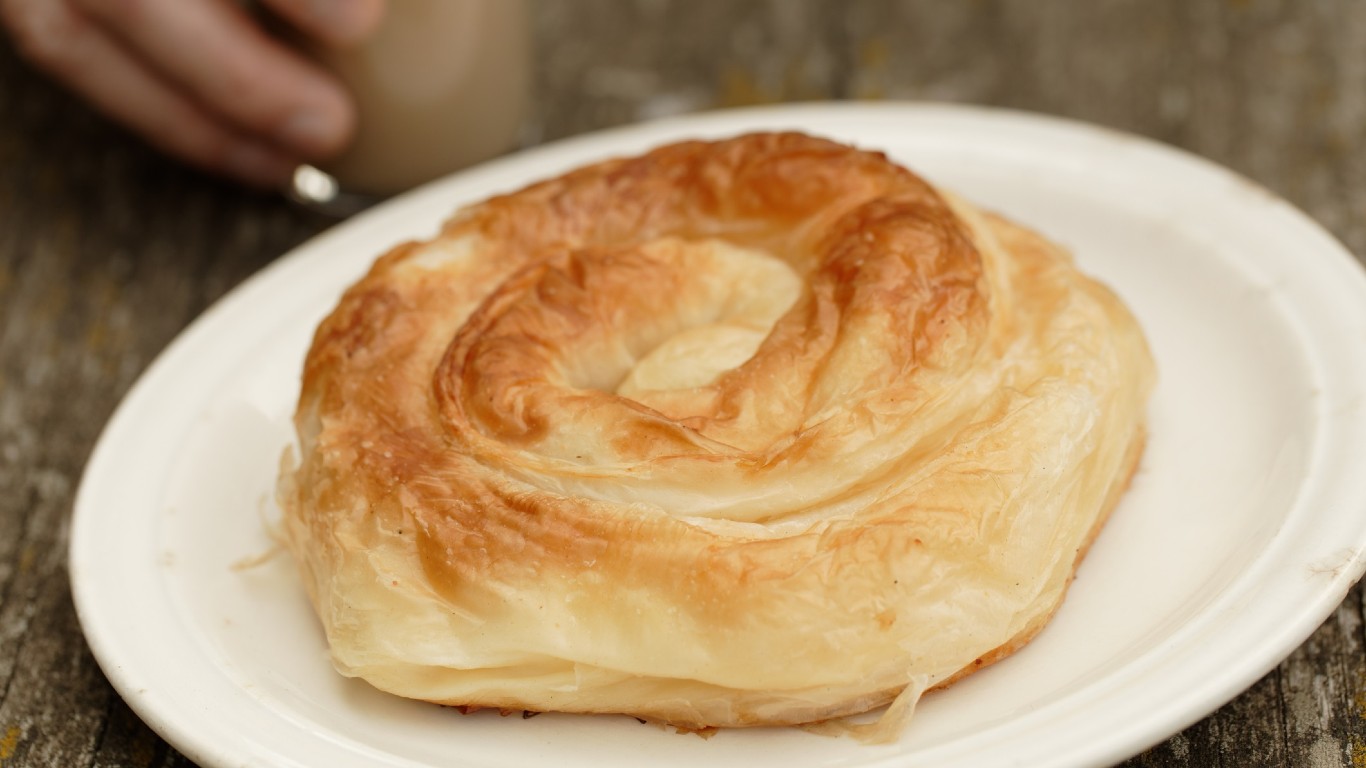
Bulgaria
> Sample breakfast dish: Egg and cheese pastry
This Balkan nation’s banitsa is a relative of Turkey’s börek — flaky filo-like pastry, either round, rectangular, or formed into a coil like sausage — with various sweet or savory fillings. A typical breakfast version is made with eggs and cheese. In place of tea or coffee, the accompanying beverage is sometimes a fermented grain drink called boza.

Malta
> Sample breakfast dish: Cheese or green pea pastries
Pastizzi are small flaky pastries, usually ovoid in shape, with a variety of fillings — most often either ricotta cheese or mashed green peas. While they’re eaten as a snack throughout the day, they are also considered a good way to start the morning.
[in-text-ad-2]
Portugal
> Sample breakfast dish: Egg custard tarts
Though the Portuguese often eat various kinds of toast or sandwiches for their morning meal, one particular treat is the pastel de nata — a custard tart with a puff-pastry-like shell. Copious amounts of coffee are consumed as well.
Sweden
> Sample breakfast dish: Open-faced sandwiches
The most common Swedish breakfast is centered around one or more smörgåsar, or open-faced sandwiches (a smörgåsbord is literally a sandwich table). Typical toppings, besides butter and cheese, might include some combination of liver pâté, cold cuts, pickles, cucumber, and/or bell pepper.
[in-text-ad]
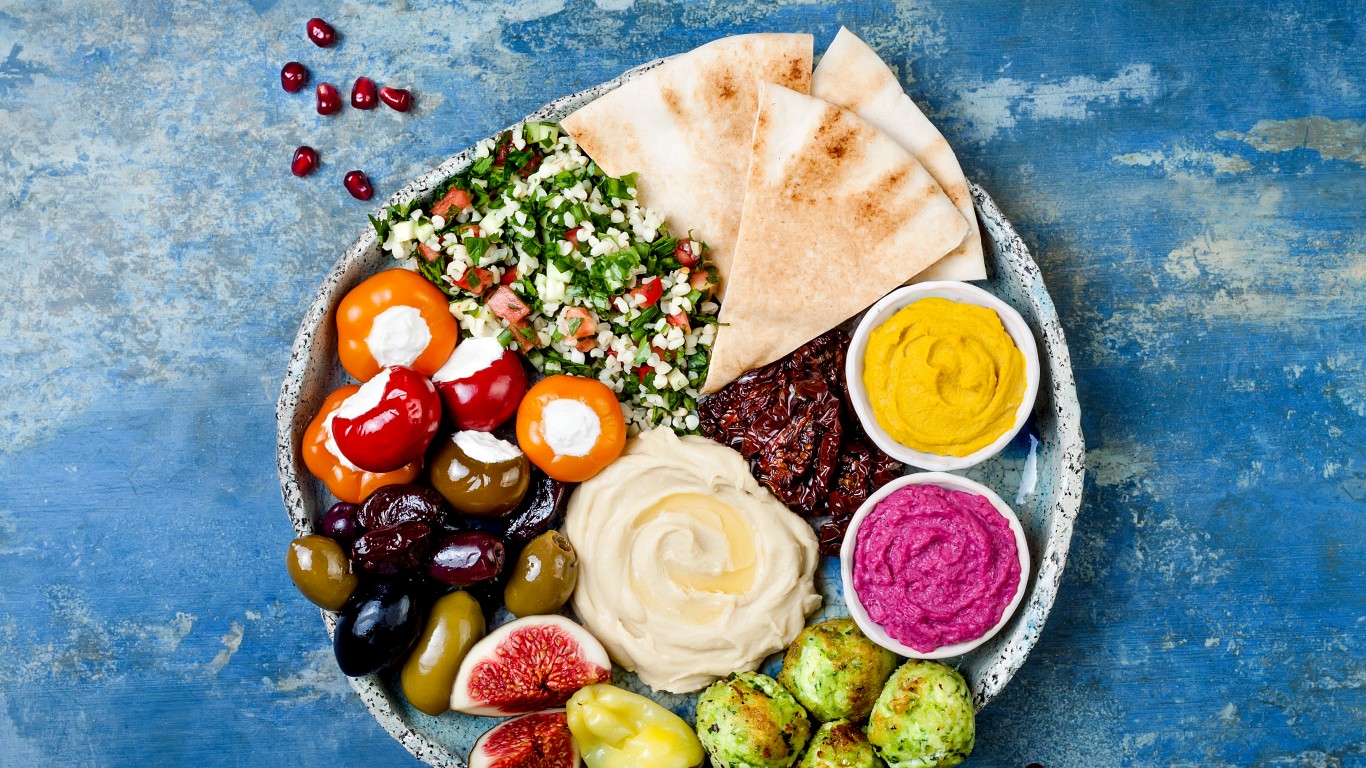
Turkey
> Sample breakfast dish: Flatbread, cheese, olives, tomatoes, etc.
As elsewhere in the eastern Mediterranean, breakfast in Turkey tends to include lots of small plates filled with foods to be eaten in various combinations. Bread — often simit, ring-shaped rolls covered with sesame seeds — is a given, and there are nearly always cheese, eggs in some form, olives, tomato wedges, cucumber slices, either jam or honey (or both), and tea. Spicy sausage is often added.

Egypt
> Sample breakfast dish: Stewed fava beans
Considered Egypt’s national dish, ful medames consists of stewed fava beans (usually reconstituted dried brown ones) mashed with olive oil, lemon juice, and cumin. Though it is eaten at other times of day, it is considered a breakfast basic, sometimes topped with chopped hard-boiled eggs.
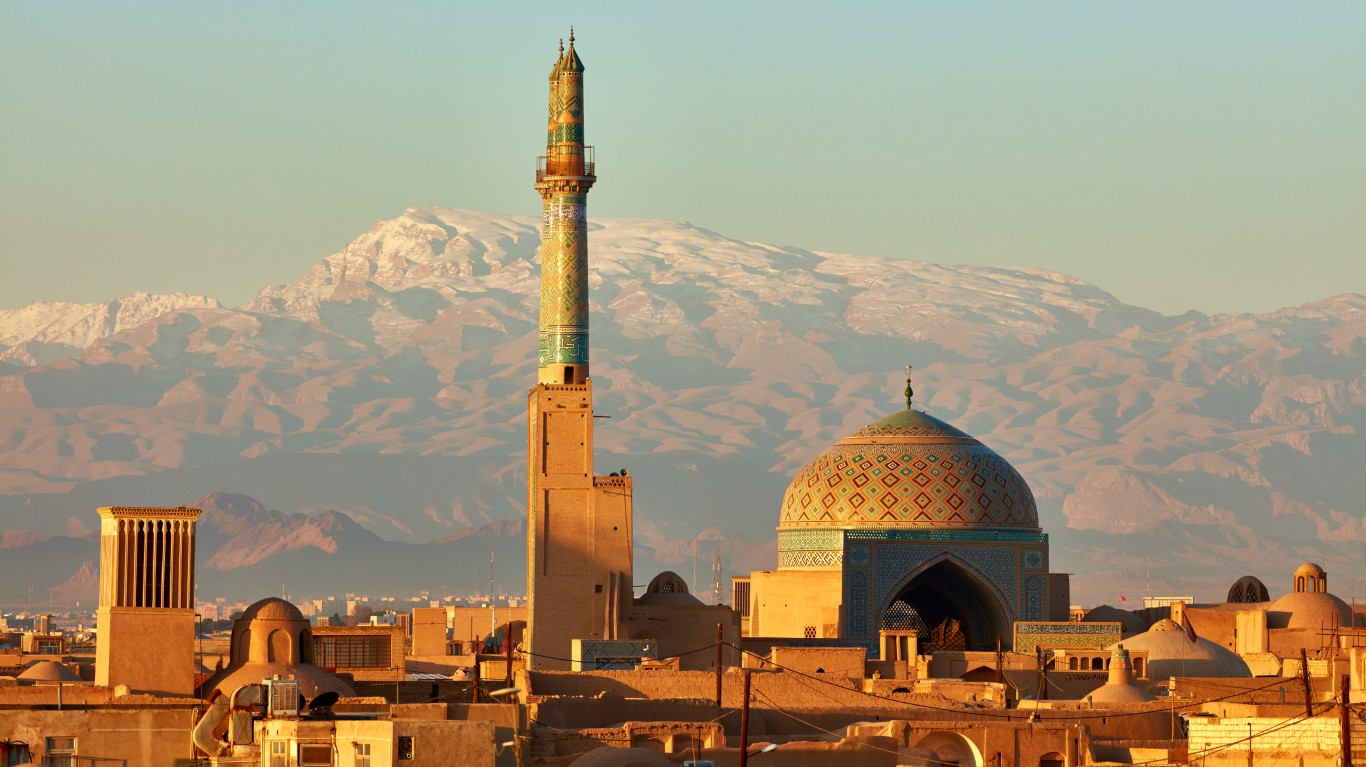
Iran
> Sample breakfast dish: Wheat mixed with meat
A traditional Iranian dish usually served for breakfast, haleem (or halim) is a kind of porridge made with pelted wheat (with the bran removed but the germ intact) or sometimes barley, mixed with long-cooked lamb or other meat or poultry. It may be enhanced with cinnamon, sugar, and melted butter.
[in-text-ad-2]

Lebanon
> Sample breakfast dish: Flatbread with herbs and spices
Za’atar man’ouche is a simple flatbread generously topped with olive oil and the herb mixture called za’atar — traditionally a blend of a Middle Eastern thyme- or oregano-like herb with dried sumac, sesame seeds, and salt, though other herbs and spices are sometimes included. The bread is considered an ideal way to start the day because za’atar contains magnesium, iron, and other nutrients.
Morocco
> Sample breakfast dish: Fava bean soup
A familiar breakfast dish, especially in the colder months, bessara is a dense soup made with dried fava beans, garlic, olive oil, and cumin. Instead of eating it with a spoon, Moroccans sometimes scoop it up with a piece of bread, as though it were a liquid dip.
[in-text-ad]
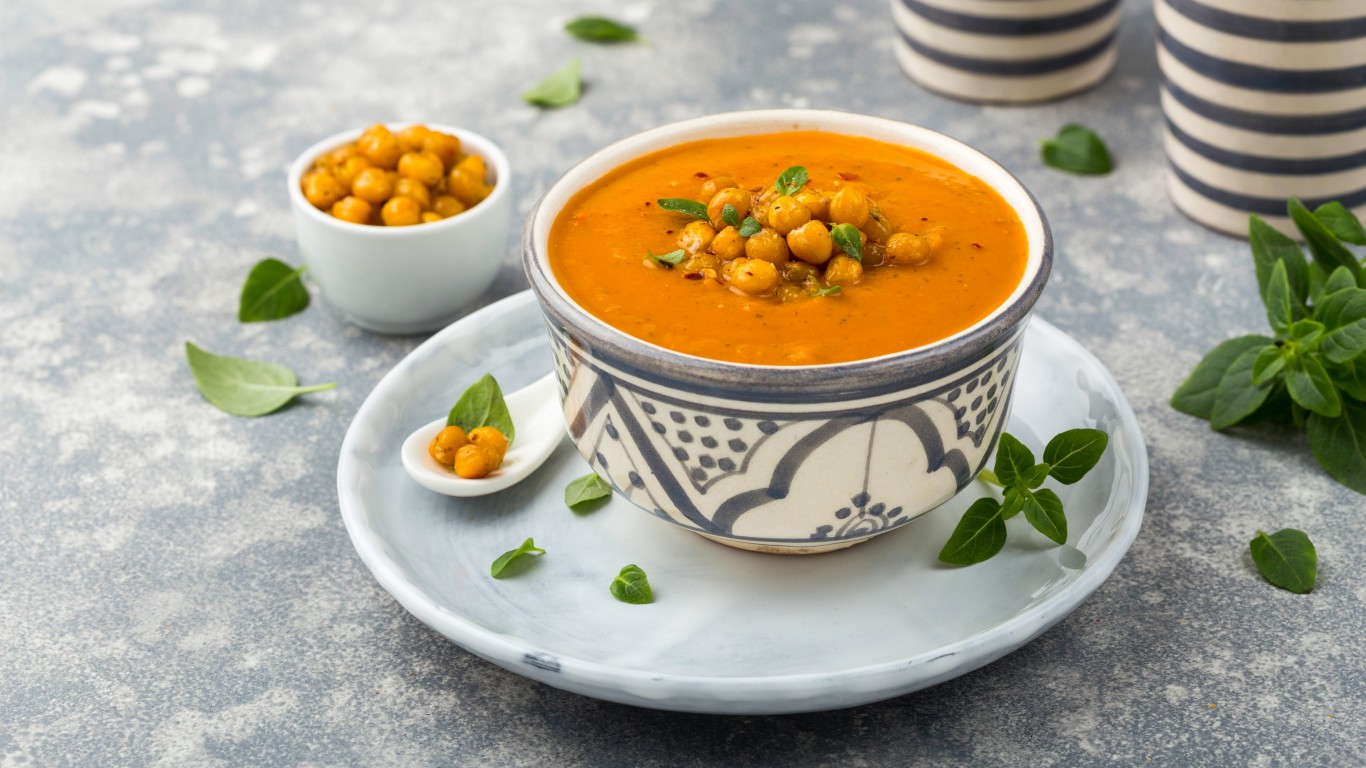
Tunisia
> Sample breakfast dish: Spicy chickpea soup
Tunisians sometimes turn to the soup pot, too, for their morning repast. Lablabi is a hearty, spicy soup made from dried chickpeas (garbanzos), onions, garlic, olive oil, cumin, and the vivid Tunisian hot sauce called harissa. A poached egg is often added.
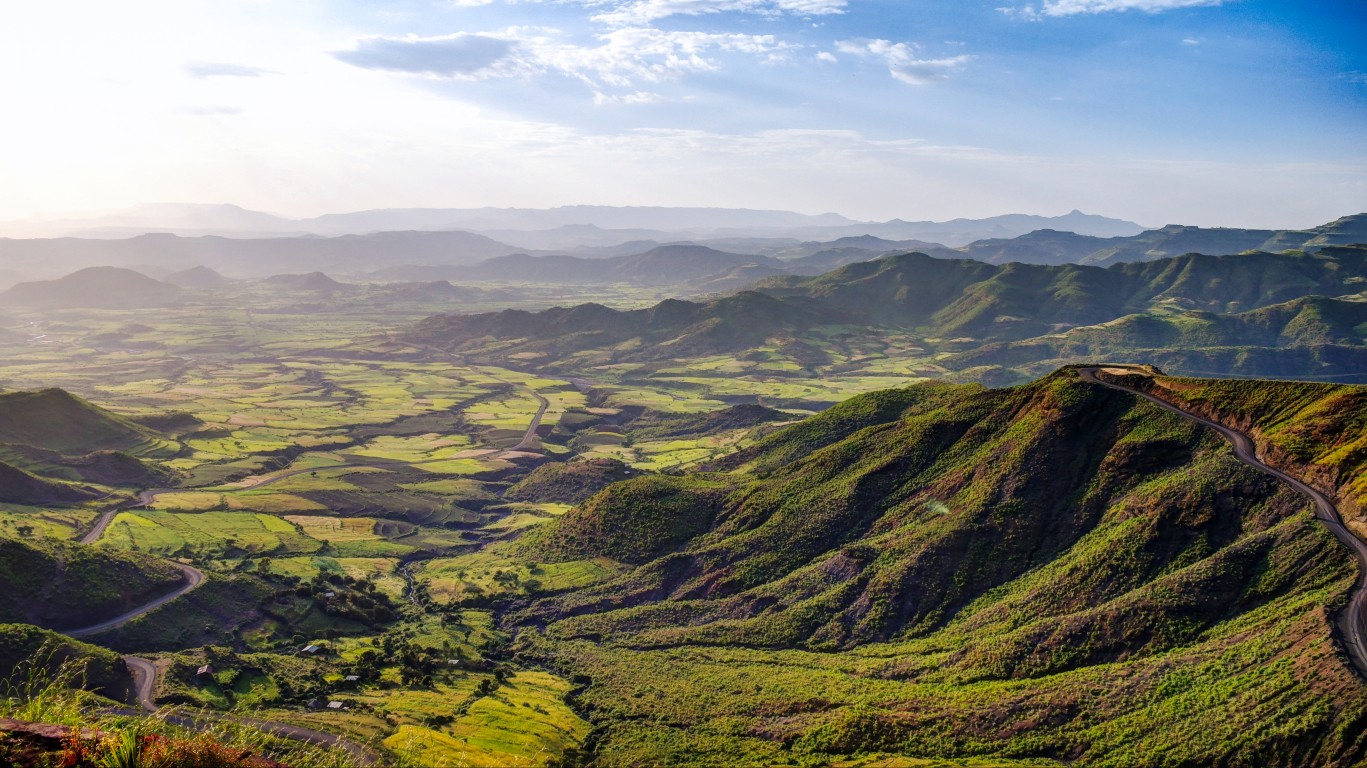
Ethiopia
> Sample breakfast dish: Barley porridge with butter and spices
Genfo is an Ethiopian breakfast favorite. It’s a thick barley-flour porridge served with a well in the center into which is poured clarified butter and the spice mixture called berbere, whose ingredients include chiles, garlic, ginger, fenugreek, and several herbs and spices unique to Ethiopia and vicinity.
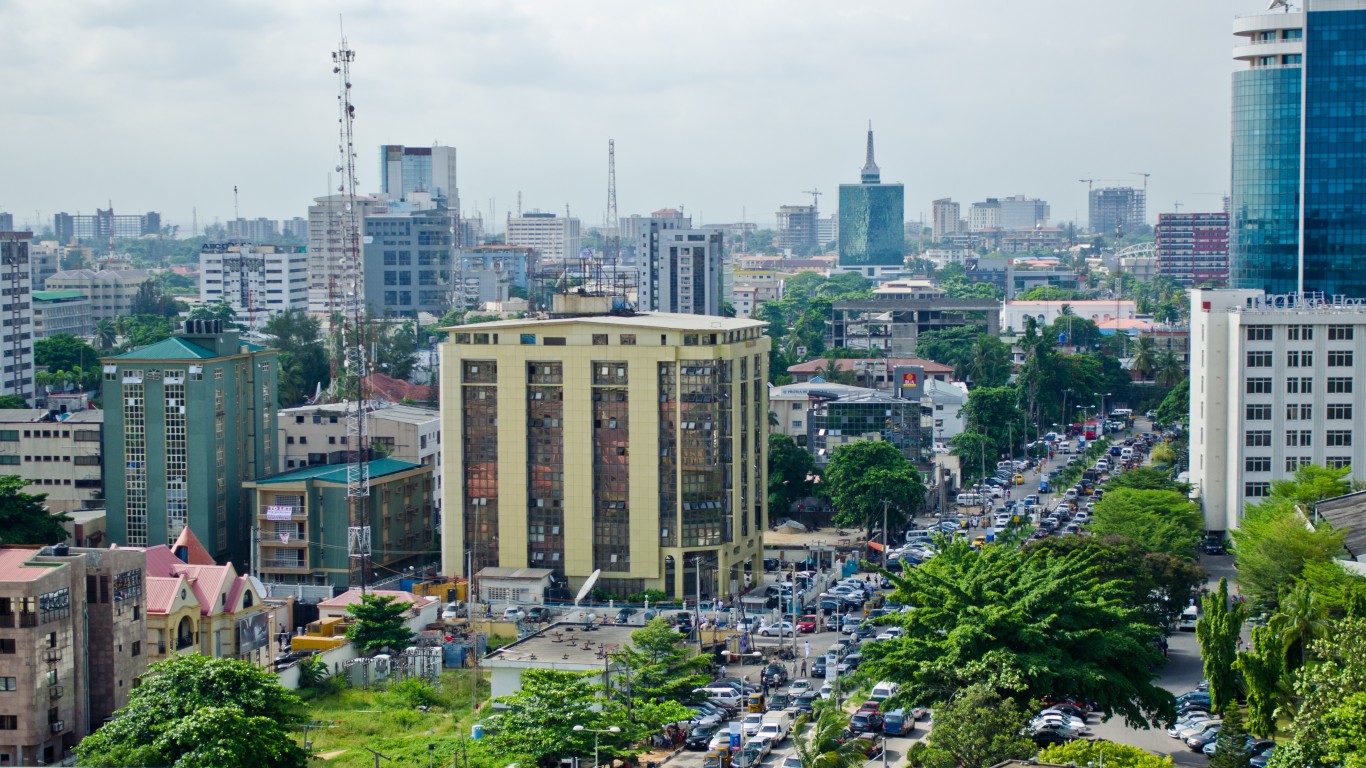
Nigeria
> Sample breakfast dish: Black-eyed pea fritters and fermented pudding
A typical weekend breakfast in Nigeria might include akara and akamu. The former are fritters made with puréed black-eyed peas; the latter, also called ogi or pap, is a semi-solid, sourish cake or solidified porridge made with fermented corn flour.
[in-text-ad-2]

Senegal
> Sample breakfast dish: Spicy black-eyed pea sandwich
A common street food in Senegal, ndambe is a spicy stew of black-eyed peas and meat, slathered onto a split baguette.
China
> Sample breakfast dish: Rice porridge
A ubiquitous breakfast dish in China, also eaten elsewhere in Asia, congee (also called jook) is made by boiling rice in ample water until it turns into a pudding-like mass. Various kinds of meat, fish, vegetables, nuts, or fruit may be added, and congee is sometimes served with youtiao — in effect, Chinese churros — to be dipped into the rice.
[in-text-ad]
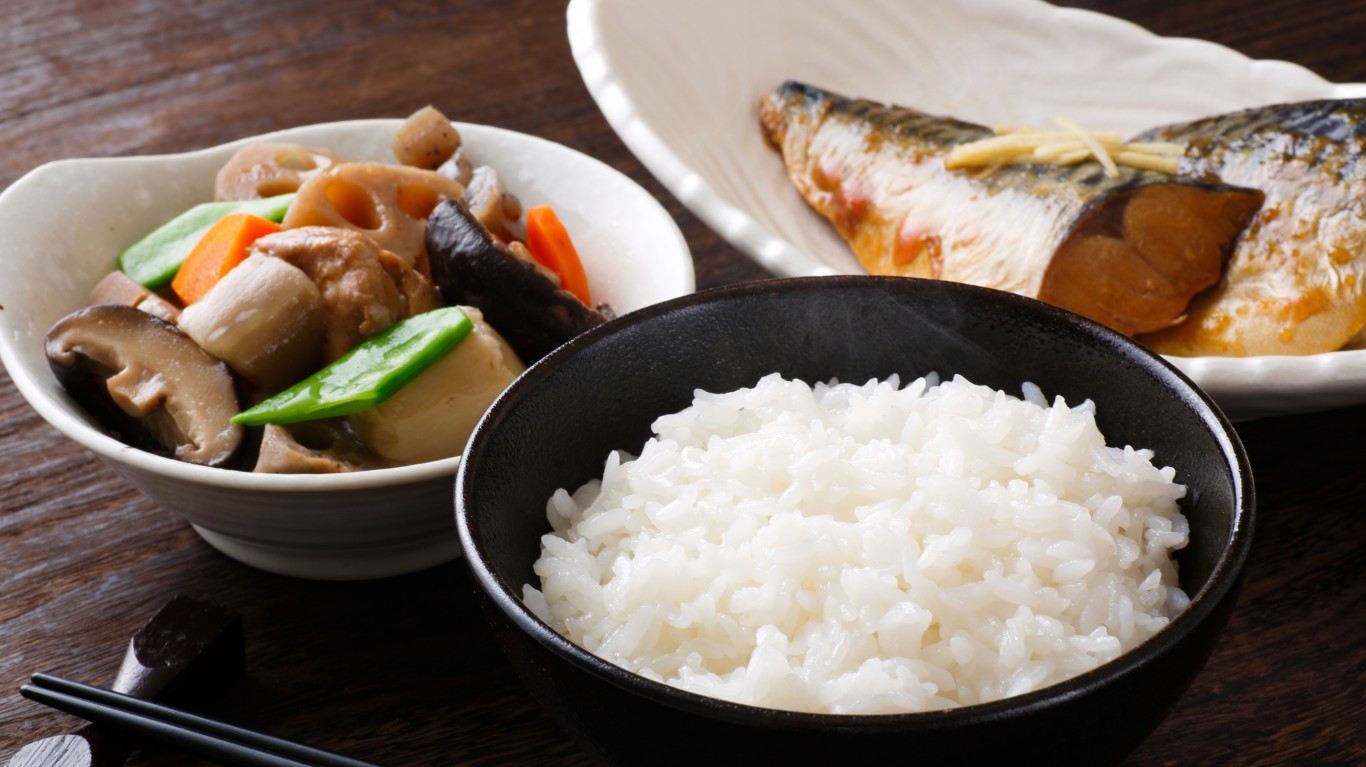
Japan
> Sample breakfast dish: Rice, fish, soup, and pickled vegetables
The traditional Japanese breakfast is a meal of multiple small dishes, based around steamed rice and miso soup, usually with simply cooked fish, pickled vegetables, and such additions as tofu, eggs, and/or fermented soybeans.
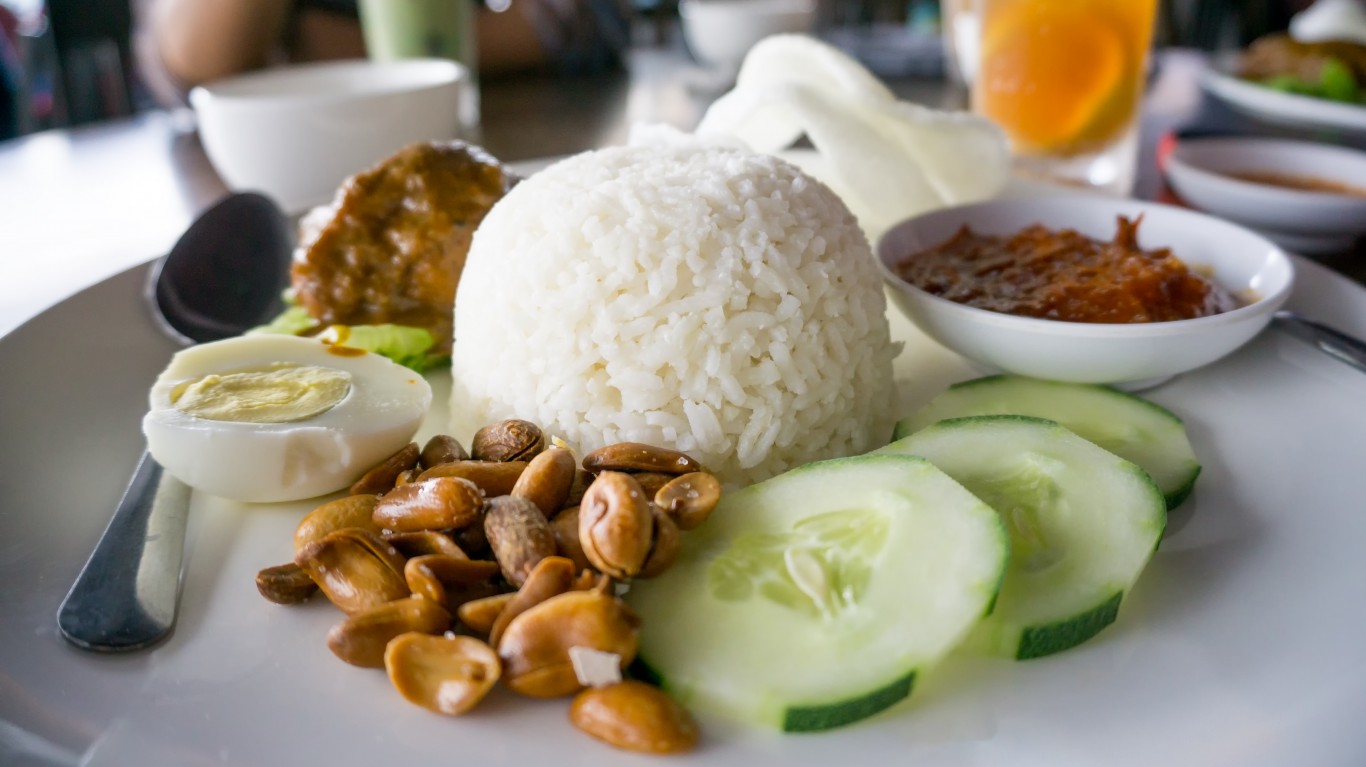
Malaysia
> Sample breakfast dish: Rice with eggs, peanuts, and anchovies
Nasi lemak is another breakfast dish built around rice, in this case cooked with coconut milk and spices. The accompaniments typically include fried anchovies, peanuts, a hard-boiled egg, and sambal, a spicy red chile and garlic condiment.
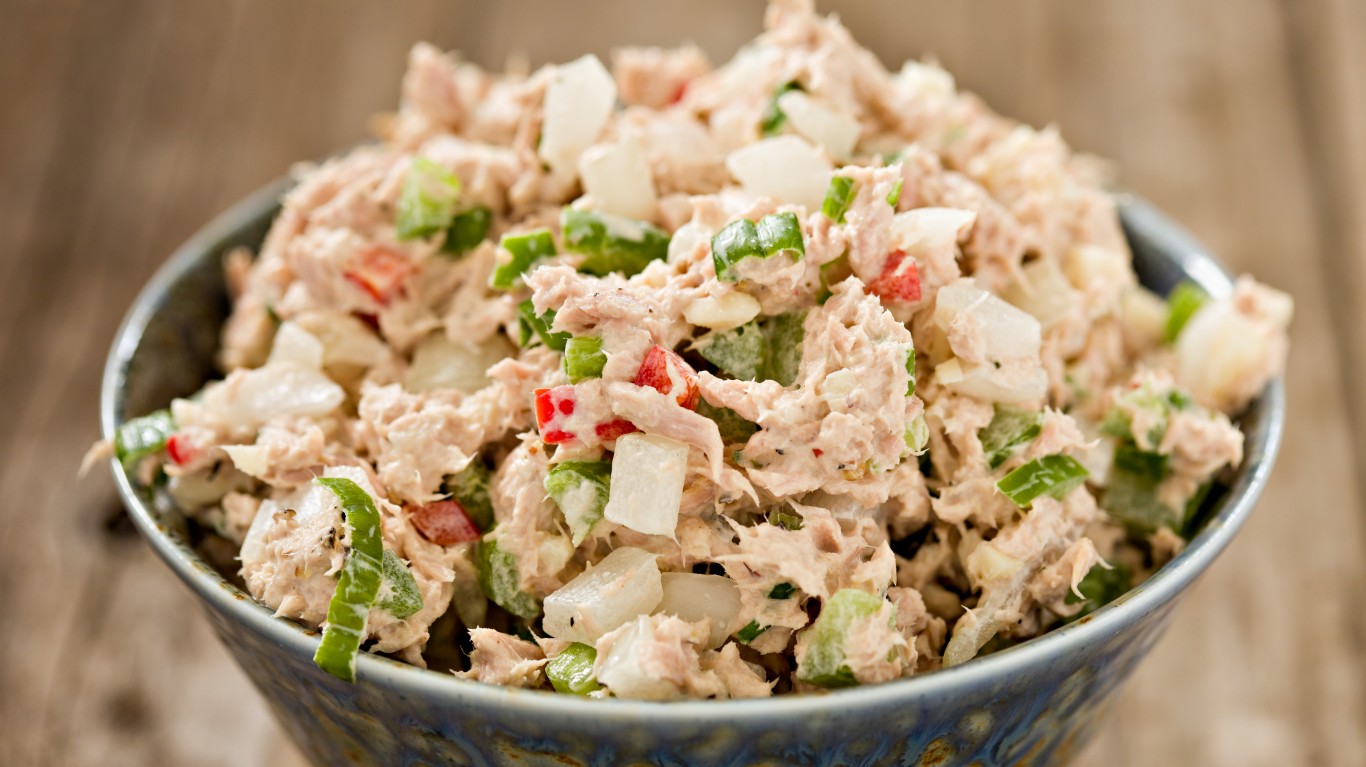
Maldives
> Sample breakfast dish: Tuna salad
The classic morning meal in this island nation in the Arabian Sea, southwest of Sri Lanka and India, is mas huni, a spicy tuna salad made with chiles, onions, lime juice, grated coconut, and coconut milk. It is accompanied by huni roshi, a coconut flatbread.
[in-text-ad-2]

Myanmar
> Sample breakfast dish: Catfish noodle soup
The unofficial national dish of Myanmar, mohinga is eaten throughout the day, but is primarily considered breakfast fare. It’s a broth made with catfish or some other fish, flavored with lemongrass and ginger and thickened with rice powder. Fish sauce, rice noodles, and other additions are stirred in and the soup may be garnished with sliced hard-boiled eggs.
Philippines
> Sample breakfast dish: Garlic-fried rice with eggs and meat
The typical Filipino breakfast, silog, is a combination plate of garlic-fried rice, egg (usually fried), and meat or fish of some description. The meat could be longanisa sausage, dried beef, even hot dogs, even Spam.
[in-text-ad]

Singapore
> Sample breakfast dish: Toast with coconut custard jam
Singaporeans eat many different things for breakfast, but kaya toast is quite possibly the most popular of all. It consists of toasted (or, ideally, grilled) white bread spread with a custardy jam made with eggs, coconut, sugar, and the fragrant herb called pandan. Kaya toast is typically topped with a pat of butter or margarine, which melts into the jam.
Taiwan
> Sample breakfast dish: Savory pancakes
Dan bing has been called “the Taiwanese street-food answer to a breakfast burrito.” It’s basically a crêpe topped with egg (sometimes mixed with things like cheese, shredded meat, or scallions), then rolled and sliced into bite-sized pieces. The pieces are usually dipped into soy sauce, hot sauce, or some other condiment.
Vietnam
> Sample breakfast dish: Noodle soup with meat
Arguably the most famous and widely enjoyed of all Vietnamese dishes, phở is eaten for lunch and dinner, too, but is Vietnam’s most common breakfast. A hearty meal, it’s clear beef or chicken broth loaded with rice noodles and assorted herbs and topped with sliced meats. The many street vendors who sell the soup start simmering their broth in the early hours of the morning.
[in-text-ad-2]
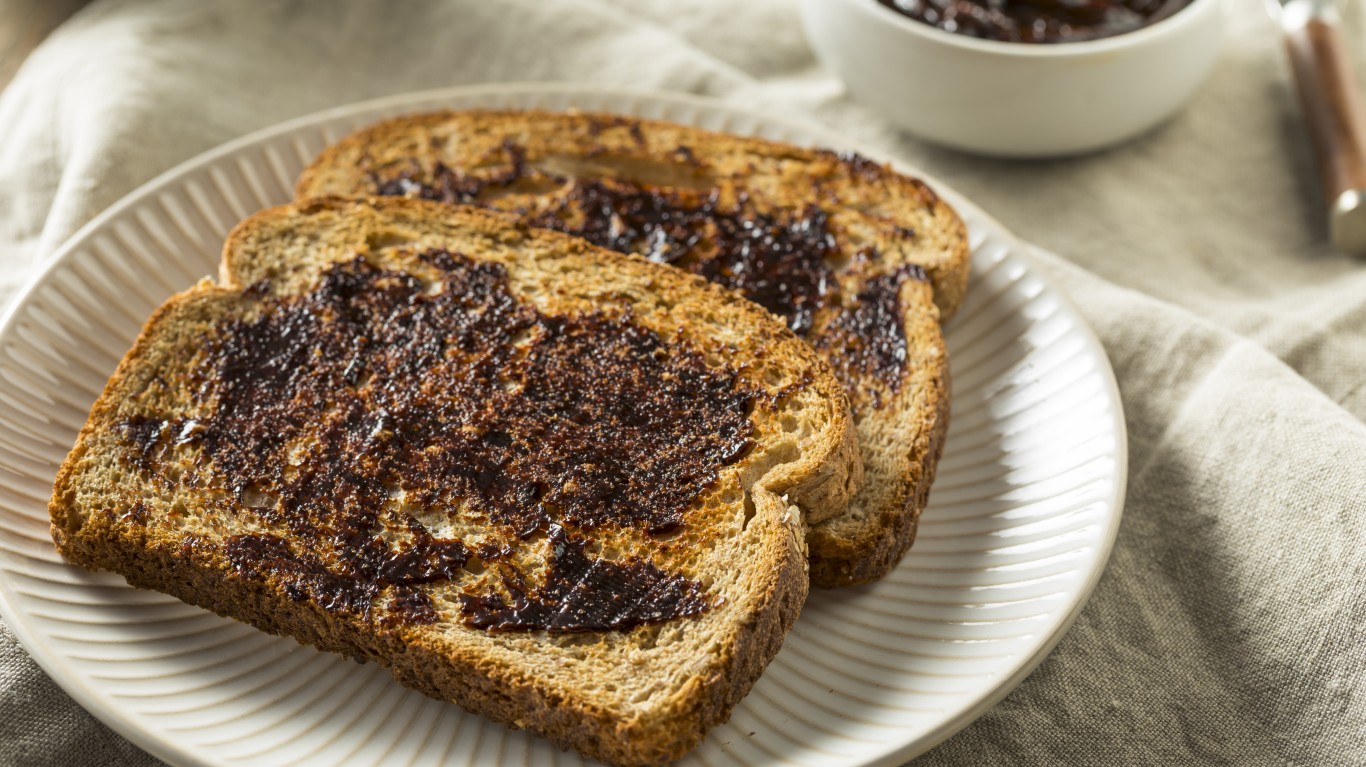
Australia
> Sample breakfast dish: Yeast spread on toast
Though Australia claims the invention of avocado toast, it’s another kind of toast that shows up most frequently on breakfast tables around the country: toast spread with Vegemite. Vegemite is a thick paste (it looks like particularly dark chocolate frosting) made with yeast extract flavored with spices and other ingredients. It’s very salty and high in umami flavors, and a little bit of it — sometimes combined with butter — goes a long way on a slice of toasted bread or even a bagel.
Credit card companies are pulling out all the stops, with the issuers are offering insane travel rewards and perks.
We’re talking huge sign-up bonuses, points on every purchase, and benefits like lounge access, travel credits, and free hotel nights. For travelers, these rewards can add up to thousands of dollars in flights, upgrades, and luxury experiences every year.
It’s like getting paid to travel — and it’s available to qualified borrowers who know where to look.
We’ve rounded up some of the best travel credit cards on the market. Click here to see the list. Don’t miss these offers — they won’t be this good forever.
Thank you for reading! Have some feedback for us?
Contact the 24/7 Wall St. editorial team.